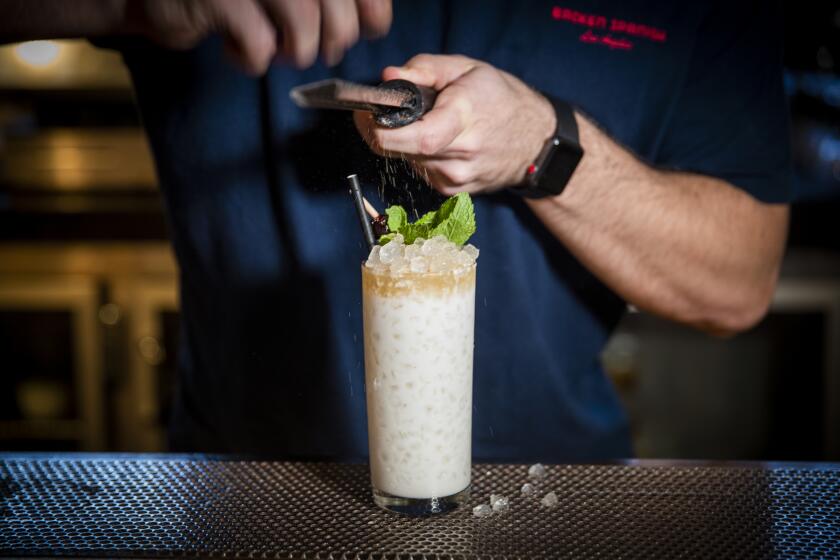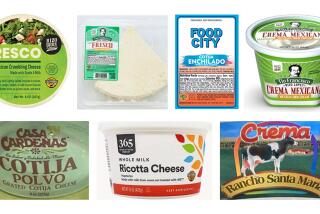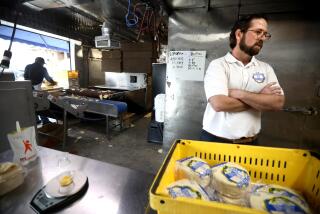Stop putting dairy in your horchata

“Does your horchata have dairy in it?” I asked after seeing a notice on the menu at the West Hollywood location of Guisados. The cashier said yes. A couple days later at La Playita Siete Mares in Silver Lake, I asked the same question and got the same answer. And then the same at Tacos 1986 in downtown L.A. After that third time, I started questioning whether I had been mistaken about my favorite agua fresca.

Though I’m not a vegan, I eschew dairy because I’m lactose-intolerant — an affliction that presented itself in my early 20s. And since then, I have always relished getting to drink horchata — rice milk flavored with canela, the Mexican cinnamon that has undernotes of clove and anise — as my chance to indulge in the type of ice-cold, milky-feeling drink I now have to miss out on.
Broken Spanish’s horchata cocktail, El Cumbunchero, mixes rich coconut-and-rice horchata with homemade canela bitters and vanilla simple syrup for a frothy, refreshing tipple.
I asked my colleague Gustavo Arellano about milk in horchata, and he told me, “All the horchata I know uses some sort of evaporated milk.”
However, Jennifer Feltham, one of the owners of Sonoratown in downtown L.A., said, “Real horchata isn’t supposed to have dairy. But it’s easier, cheaper and involves less labor to use cow milk because you get that creamy texture without all the work of soaking, blending, then straining out the rice.”
The fattiness of coconut adds a luxurious creaminess to the classic agua fresca
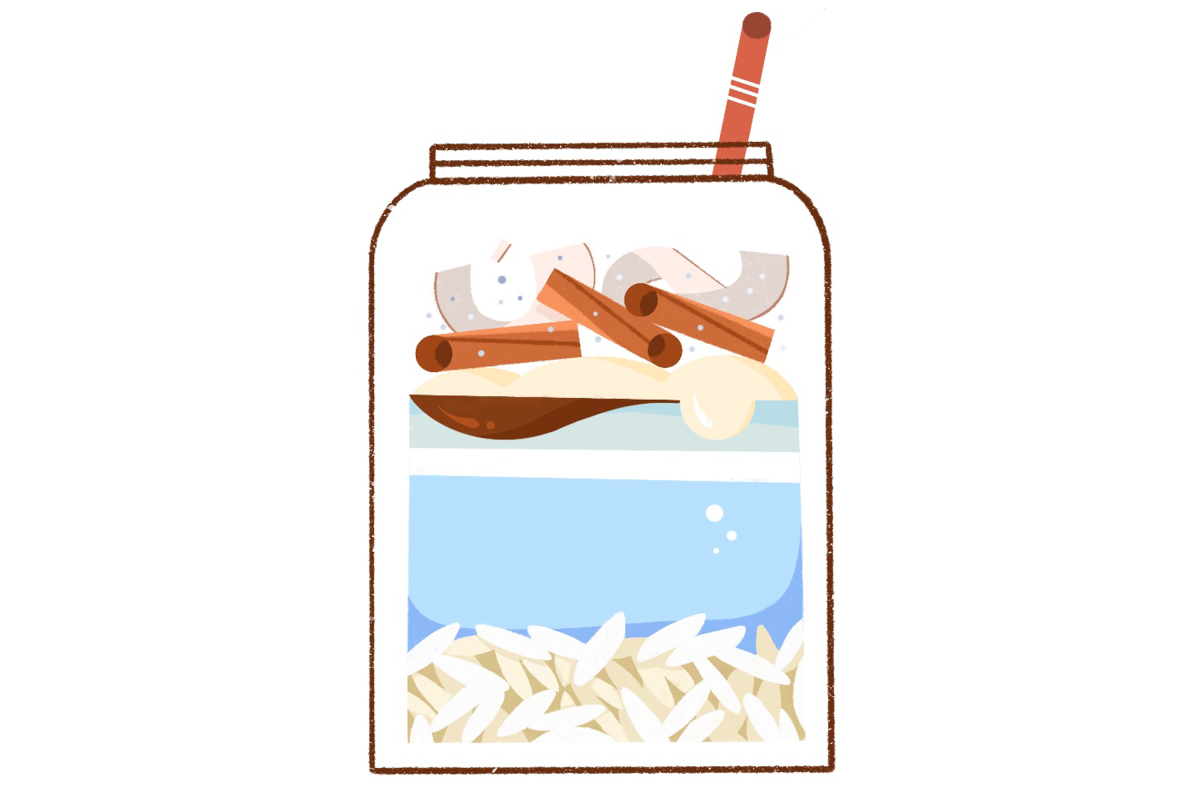
Feltham told me even though her prep cooks used to insist on using La Lechera — a popular brand of evaporated milk — to save money, she chooses not to include it. “Ours is inspired by a street vendor in San Luis Río Colorado in Sonora, who serves it with chunks of coconut on top. He put dairy in his too, though, but I chose to go full tilt with the coconut and use that for the fatty richness,” she said.
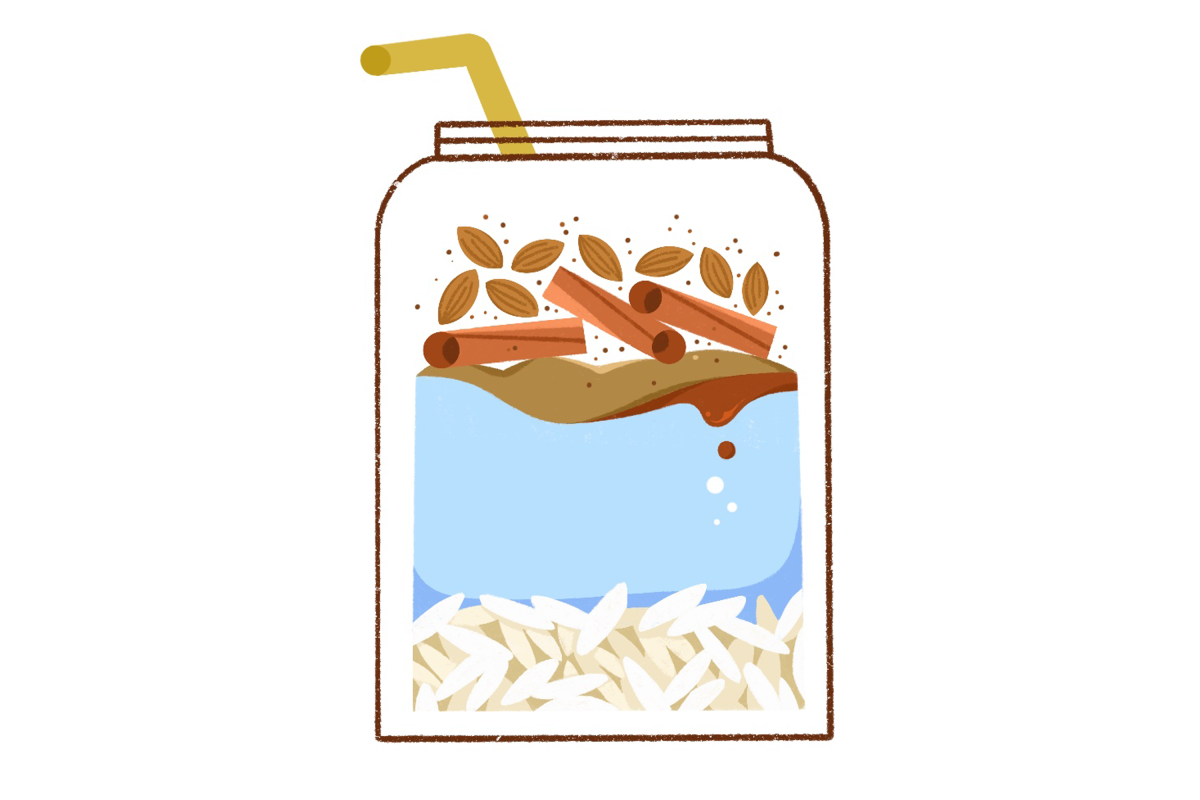
Gilberto Cetina, chef at Chichen Itza in Historic South-Central, told me his horchata never has dairy. “Horchata is like mole: Every family has their own recipe; every town has its own version,” Cetina said. “Our recipe is pretty traditional, using just rice, water, canela, and a mix of piloncillo and brown sugar. I actually am not that big a fan of horchata, but the one time I crave it is when I’m eating a torta cochinita. If I’m eating that sandwich, I have to be drinking horchata.”
Using basic ingredients, Gilberto Cetina’s horchata sticks to tradition.

During a failed experiment to make the drink with cooked rice for extra creaminess, I quickly realized how the raw rice flavor, not cinnamon, really is the backbone of Mexican horchata. (There are horchatas from all over: In Spain, horchata is made from tiger nut, a tuberous rhizome that has flavors of coconut and almond; in El Salvador there are morro, sesame and pumpkin seed horchatas.) As the makers of Budweiser will no doubt let you know, raw rice offers a clean, distinctive lightness when it’s blended into a drink, whether that’s a Mexican rice-milk agua fresca or an ultralight American brew.
Rice from Morelos, Mexico, is fragrant and floral, perfect for flavoring the classic agua fresca

Of course, rice is just the starting point, and there are many regional variations — like Feltham’s use of coconut or the float of prickly pear syrup used at the Oaxacan restaurant Guelaguetza near Koreatown.
“There’s a famous combination of smoky, burnt milk ice cream that’s topped with tunas [prickly pear cactus fruit] in Oaxaca,” said Bricia Lopez, one of the owners of Guelaguetza. “So our horchata [topped with melon, pecans and tunas syrup] is an homage to that and to a woman named Doña Casilda, a vendor in the central market in Oaxaca City, who was the first to add toppings to horchata like that.”
Guelaguetza’s top-selling item is its rice-based agua fresca, crowned with chopped melon, pecans and a spike of hot pink prickly pear syrup.
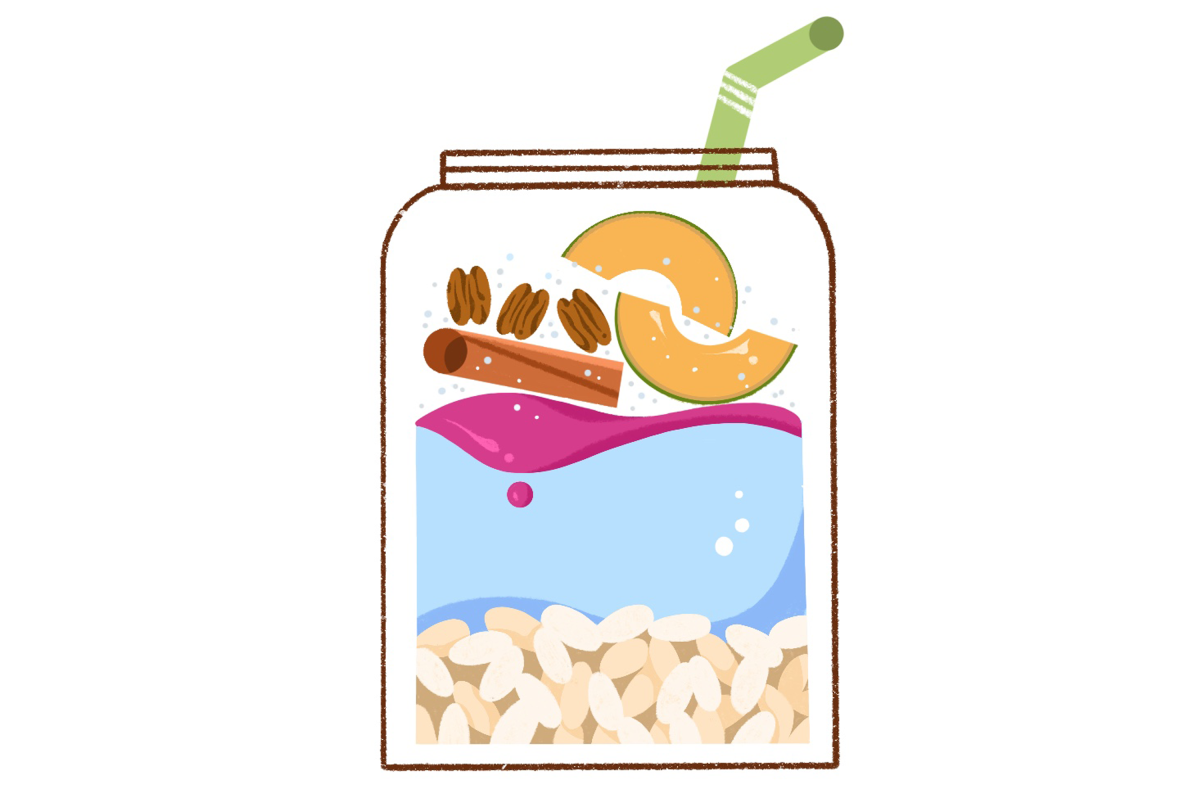
When I asked Lopez about the use of dairy in horchata, she recalled a prep cook at Pal Cabron, her now-closed restaurant, who made horchata the Pueblan way she knew, by blending fresh cantaloupe and Carnation evaporated milk into it. “That restaurant was all about Pueblan cuisine, so we kept her version of horchata that way,” Lopez said. “I had never encountered dairy in horchata before then. I think some places add dairy to make their horchata more white and homogeneous, but real horchata should separate a bit while it sits there. The fun of drinking it is to stir it back up!”
More to Read
Eat your way across L.A.
Get our weekly Tasting Notes newsletter for reviews, news and more.
You may occasionally receive promotional content from the Los Angeles Times.
